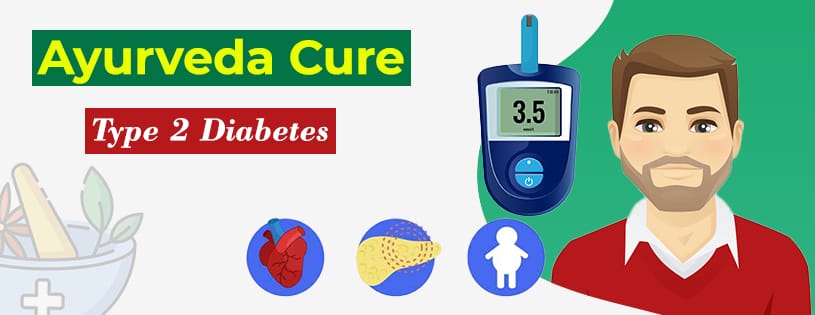What is Diabetes?
Diabetes is a disease that may occur when a person has high blood glucose or blood sugar levels. Blood glucose is the main source of energy that is derived from the food that a person eats.
Insulin is a hormone that is generated by the pancreas, which helps glucose from food get into our cells to be used for energy. Sometimes our body does not use insulin well or fails to make enough, or any insulin at all. In such cases the glucose stays in our blood and does not reach our cells.
Over time, excessive glucose in our blood can cause health complications. Diabetes may not be curable, but one can take steps to manage the condition and stay healthy.
Does Diabetes have types?
Diabetes is of different types. The most common types are type1, type 2, and gestational diabetes.
Type 1 Diabetes:
In this stage, the immune system attacks and eliminates the cells in our pancreas that make insulin, preventing the body from making insulin. Type 1 diabetes is commonly diagnosed in kids and adolescents, although it may occur at any age. People diagnosed with type 1 diabetes need to take insulin on a daily basis to stay alive.
Type 2 Diabetes:
It is the most common type of diabetes. Type 2 diabetes prevents the body from making or using insulin well. This type of diabetes is usually not age bound and, in some cases, it may occur during childhood. A person is more likely to develop type 2 diabetes if they are over 45 years of age or have a previous history of diabetes in their family, or if they are overweight.
Gestational Diabetes:
Gestational diabetes develops in some women during pregnancy. Mostly, this type of diabetes goes away soon after the delivery of the child. However, a woman who has had gestational diabetes before will have an increased risk of developing type 2 diabetes later in her life. It is sometimes common for diabetes diagnosed during the time of pregnancy to be type 2 diabetes.
How does diabetes affect the kidneys?
Diabetes can cause injury to the small blood vessels in the body. The kidneys may fail to clean the blood properly when the blood vessels in the kidneys get damaged. Our body will then retain extra salt and water than it should, which can result in weight gain and swelling around the ankle. We may have protein in our urine. Also, waste materials may get built up in the blood.
Diabetes may also cause damage to nerves in our bodies. This can cause a person difficulty in emptying their urinary bladder. The pressure resulting from our full bladder can back up and may result in injuring the kidneys. The bladder holding on to the urine for too long can cause an infection from the rapid growth of bacteria in the urine that has a very high sugar level.
Early signs and symptoms of kidney disease in diabetic patients
Increased excretion of albumin in the urine is the earliest indication of a diabetic kidney disorder. This is present long before the doctor finds enough evidence of possible kidney disease through tests.
A person suffering from diabetes must get their blood, urine, and blood pressure checked at least once a year. By maintaining control of their diabetes, one can lower the risk of developing severe kidney disease.
Last Signs of kidney disease in Diabetic patients
A person’s blood urea nitrogen (BUN) levels may rise as well as the level of creatinine in their blood as their kidneys fail. Signs like nausea, vomiting, a loss of appetite, weakness, itching, muscle cramps, and anemia are also common. A person may find that they require less insulin. This is due to the infected kidneys causing the lesser breakdown of insulin.
Diabetic nephropathy
Diabetic nephropathy is a medical problem of type 1 and type 2 diabetes. It is also called diabetic kidney disease. It can affect the kidneys’ ability to do their usual function of removing waste products and extra fluid from the human body. The most feasible way to prevent or postpone diabetic nephropathy is by developing a healthy lifestyle and managing one’s diabetes and high blood pressure.
With the passage of time, the condition slowly damages one’s kidneys’ delicate filtering system. Timely treatment may help prevent or slow down the disease’s progress thus reducing the chances of further complications.
Risk factors
If a person is living with diabetes, factors that can increase their risk of diabetic nephropathy include:
- Uncontrolled high blood sugar (hyperglycemia)
- Uncontrolled high blood pressure (hypertension)
- Being a smoker
- High blood cholesterol
- Obesity
- Any previous medical history of diabetes and kidney complications in family
Role of Ayurveda in Diabetes Treatment
Ayurveda treatment generally focuses on changes in the diet and lifestyle of the person. People suffering from type 2 diabetes happen to be strong and overweight. Their treatment is aimed at fat reduction. The procedure of treating type 2 diabetes also involves a combination of diet changes and herbal medicines along with changes in lifestyle.
Ayurvedic treatment for type 2 diabetes comprises diet recommendations such as –
- Increase intake of barley in the diet.
- Have fruits such as orange, watermelon, apple, and amla.
- Add oils such as soybean oil, groundnut oil, and mustard oil to foods.
- Avoid sugar, rice, potato, butter, fat, alcohol, and other heavy items.
Ayurvedic treatment for type 2 diabetes also comprises of changes in lifestyle such as-
- Regular exercising and physical activities like walking, running, or swimming
- Regular oil massage
- Regular steam
Diabetes can be cured by Ayurveda and makes it the ideal treatment alternative as it has no side effects on the body. It is affordable and result-oriented.

